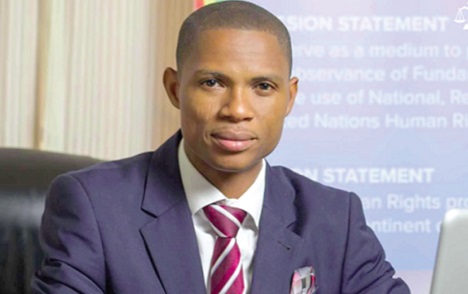
Assess MPs on their core functions — Sosu
The National Democratic Congress (NDC) Member of Parliament (MP) for Madina in the Greater Accra Region, Francis-Xavier Kojo Sosu, has described as unfortunate the criteria used by the electorate to assess the performance of MPs in recent times.
He said instead of MPs being assessed based on their core function of legislation, the electorate rather looked at the number of development projects their representatives in Parliament were able to execute in the constituency.
He, therefore, called for more public engagements to help change that perception as it was not the duty of MPs to construct roads or initiative capital intensive infrastructural projects.
Visit
Mr Sosu said this during an educational forum organised by the Department of Public Safety Engagement of Parliament for the University of Professional Studies, Accra (UPSA) student parliamentarians at the Parliament House.
Advertisement
The student parliamentarians were in the House to learn at first hand how Parliament works and how they could participate indirectly in shaping policies.
The legislator for Madina explained that rather it was the central government and the local assemblies that were responsible for the provision of infrastructural development such as roads, schools, hospitals, among others, in constituencies.
"MPs don't have the financial muscle to construct roads and undertake major projects," he said.
DLEs
Touching on the December 19, 2023 District Level Elections, Mr Sosu appealed to eligible Ghanaian voters to get involved in the local government elections to vote for people who would represent their interest and hold government accountable.
"But if the only reason why you will be voting for a particular candidate is based on money or who attends a church harvest, then you have lost it," he said.
Mr Sosu also re-ignited the calls for local assemblies to be independent of central government and their chief executives to be elected.
The MP said the election of district chief executives was crucial because it gave confidence to the people as someone they legitimately elected to maximise their locally endowed natural resources for the development of basic infrastructure in their respective local government jurisdiction.
He said this would help discourage the practice where supervision of local development projects were relied on significantly by external consultants.
On the structures and how committees in Parliament work, a Principal Assistant Clerk and Head of Infrastructure and Security Cluster, Janet Frimpong, took the students through all 31 committees and how bills referred to such committees are carried.
Quoting Article 103 (5) of the Constitution and Standing Order 155 which mandate Parliament to establish such committees, Mrs Frimpong said the Standing Orders regulated the works of Parliament without which things would be done haphazardly.
For instance, she said Order 153 required every Member of Parliament to belong to at least one committee.
She told the students that apart from the Public Accounts and Subsidiary Legislation Committees chaired by the Minority, all other committees were chaired by the Majority with the Minority members serving as ranking members.
History
Tracing the history of the Parliament of Ghana from its Westminster type days to present day Ghana, the Director, Public Engagement of Parliament, Superintendent (rtd) Effia Tenge, said the legislative representation dated back to 1950 when the country was a British colony known as the Gold Coast.
The Legislative Council, as the body was then known, was purely advisory as the governor exercised all legislative and executive powers.
